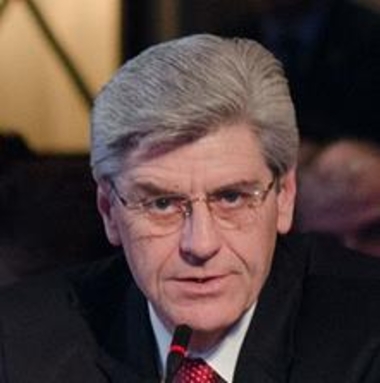Protests set for Miss. law that's seen as anti-gay

Jackson, Miss. (AP) — At a leafy college campus in north Mississippi and an upscale dinner club in New York, groups are protesting a Mississippi law that opponents say could sanction discrimination against gays and lesbians.
The Mississippi Religious Freedom Restoration Act was signed by Republican Gov. Phil Bryant in April, and becomes law July 1.
The law says government cannot put a substantial burden on religious practices without a compelling reason. It does not mention gays or lesbians, but critics fear it will provide justification for business owners who oppose homosexuality to refuse services to same-sex couples.
One protest is expected Saturday when the governor speaks at the University of Mississippi's graduation in Oxford. Organizer Kevin Cozart said he has distributed more than 350 lapel stickers with a rainbow-striped map of Mississippi and a quote from the university creed: "I believe in respect for the dignity of each person."
Cozart is a graduate student and former adviser to UM Pride Network, a group that supports lesbian, gay, bisexual and transgender students. He said students, faculty members and some administrators have requested stickers to express low-key opposition to the law.
"People that I didn't expect to get involved are asking for stickers," Cozart said.
Bryant spokeswoman Nicole Webb said she does not expect the protest to be disruptive.
"The students and the families at the university have always been hospitable, and we expect they would continue to be," she said.
A second protest is June 13, when chefs from Mississippi and other places will participate in the Big Gay Mississippi Welcome Table at City Grit, a private dinner club in New York. The dinner was organized to show opposition to the religious restoration act, and it's being held the night before the 35th annual Mississippi picnic in Central Park, where state promoters serve fried catfish and sweet tea.
"Our intention with this dinner is not an antagonistic one. What we wanted to do is send a very clear message to the rest of the world that Mississippi is not looking backward," Oxford restaurateur John Currence said. "Mississippi is about acceptance. Mississippi is about inclusion and understanding."
The protests come weeks after gay rights supporters launched another protest with hundreds of Mississippi businesses posting window stickers with the slogan: "We don't discriminate. If you're buying, we're selling."
Bryant won praise from national conservative groups, including the Family Research Council, by signing the legislation supported by Pentecostals and Southern Baptists. Family Research Council president Tony Perkins traveled from Washington to Jackson for a private bill signing ceremony in the governor's office.
Bryant said the Mississippi act mirrors a federal law President Bill Clinton signed in 1993 and that 18 other states have enacted since the mid-1990s. The governor also said he does not believe Mississippi's law will lead to anti-gay discrimination.
Currence, a New Orleans native, has worked in Mississippi for 22 years. He said gays and lesbians contribute to the state's creative economy.
Currence said Bryant and his staff have been invited to the $95-a-plate dinner, which is raising money for Pride Network at the University of Mississippi and Mississippi State University. Webb would not say whether the governor will attend.
"The governor is focused on storm recovery and the Mississippians who lost their lives during a deadly outbreak of severe weather, not on a dinner in New York City," she said.
Chef Art Smith is among those participating in the Big Gay Mississippi Welcome Table. He has restaurants in Washington and Chicago and is a former chef for Mississippi native Oprah Winfrey.
Smith, a Florida native who married his husband on the steps of the Lincoln Memorial four years ago, said he believes the Mississippi law does not represent the will of most people in the South.
"It's important that we think about the future, think about how these laws have been created to clearly discriminate against the LGBT community," Smith said. "Whenever they say that they don't — I don't believe them."
____
by Emily Wagster Pettus, Associated Press
Copyright 2014 The Associated Press. All rights reserved. This material may not be published, broadcast, rewritten or redistributed.
The Gayly – May 9, 2014 @ 11:15am





